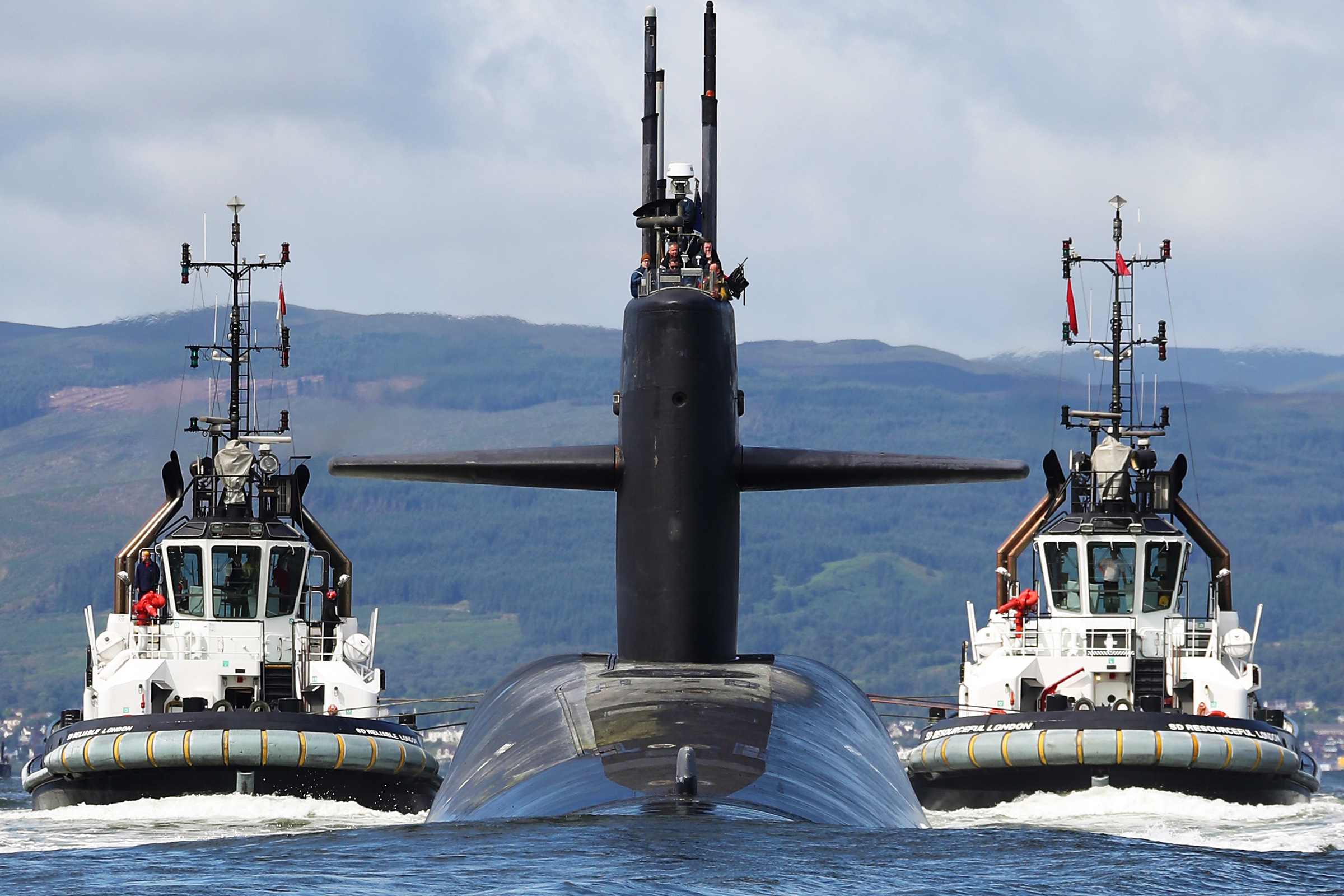South Korea: U.S. Nuclear Subs Enter Conflict
For the first time in 40 years, the United States will send nuclear submarines to the Korean Peninsula as part of a nuclear weapons deal with South Korea.
For the first time in 40 years, the United States will send nuclear submarines to the Korean Peninsula as part of a nuclear weapons deal with South Korea.
The following article was published in the May-June 2023 issue of NewsNotes.
President Biden announced plans to send U.S. nuclear-armed submarines to the Korean peninsula in return for South Korea not to develop its own nuclear weapons — a decision that the president attributes to detaining North Korea, but most experts say the real target is China.
During a state dinner at the White House on April 26, President Biden vowed to “end” the North Korean regime if it attacks South Korea – words eerily similar to President Trump’s threat to “totally destroy” North Korea in his speech to the United Nations General Assembly in 2017. The person who was able to lower the temperature between North Korea and the United States at that time – former president of South Korea Moon Jae-in – is gone now, replaced by Yoon Suk-yeol, a far-right politician known in the Korean media as a “K-Trump.”
The nuclear disarmament organization Global Zero reacted to the news of U.S. nuclear submarines going to South Korea by issuing a statement detailing two reasons why the presence of U.S. nuclear subs in South Korea is a “big step in the wrong direction.”
First, “nuclear weapons are at the heart of the danger on the Korean peninsula,” Global Zero says. “Putting U.S. nuclear-armed subs near North Korea, with enough firepower to completely annihilate a nation of 26 million people and spark a global climate catastrophe, is far more likely to aggravate tensions than alleviate them.”
“Ensuring South Korea doesn’t go nuclear is important,” Global Zero acknowledges, “but the right approach is to deepen non-nuclear military, economic, and diplomatic cooperation.” The United States should “double down” on diplomacy with North Korea, while building stronger ties with South Korea in other areas, Global Zero says.
Second, Global Zero states that “nuclear weapons can’t solve our problems. Nuclear weapons are the problem.” The presence of nuclear weapons and threats of their use overshadow and derail dialogue and diplomatic gestures. The possibility of human error resulting in contamination or worse is also a real concern.
On the same day that President Biden threatened to end North Korea, a renowned South Korean peace activist delivered a speech to hundreds of American Christians preparing to lobby Congress for peace.
“For 23 years I have been working for an organization called the Frontiers to help war victims and to prevent war,” said Dr. Song Kang Ho, who goes by “Brother Song.” “We are working to close down the naval base on Jeju Island at the southern tip of Korea and turn it into a base for peace.”
Brother Song told the story of the damage caused by the military base on the people and the environment of Jeju.
“In the construction site of the base, there was a beautiful and sacred rock called Gureombi where residents prayed and meditated and believe that the spring water gushing out of the rock was sacred. Gureombi, the holy living stone, was broken with an excavator and blown up with dynamite, and the military installation was built upon it. Every morning in front of the military base, we shout ‘Gureombi, wake up! Shut down the military base! Stop the war! And stop the war training!’ Every morning, more citizens are blocking the front gates of the naval base and are trying to force the naval Base to stop operating.
“After the military base was built, the sea became increasingly polluted, and catches declined. Sea workers have to dive deeper into the sea to collect the seafood, which makes their work more dangerous. Recently, fishermen in the village say they’re catching deformed fish off the coast of Jeju. However, they don’t know if it is because of the naval base or the contaminated water from the Fukushima power plant in Japan.
“Military exercises on land often attract attention and encounter resistance from citizens. But military exercises at sea do not. I hope the international community will pay more attention to the severe impact of war and military training at sea has on sea creatures. It is both an environmental problem and a food problem, especially for Asians, since seafood is a far more critical food source than for westerners.”
Brother Song went on to describe annual meetings of peace activists from the islands of Jeju, Okinawa, and Taiwan, “to cheer and support the lonely struggle for peace” for the residents of these East Asian islands. Together, Brother Song says, they imagine their islands and the surrounding ocean waters free of the military, bases, nuclear weapons, and the threat of war.
Faith in action: Join Korea Peace Advocacy Days, held virtually June 5-9 and hosted by Women Cross DMZ. Register by May 12 at https://mogc.info/KoreaPeace
Photo of USS Alaska, submarine sent to Korea, by Stevie Burke courtesy of the Department of Defense

